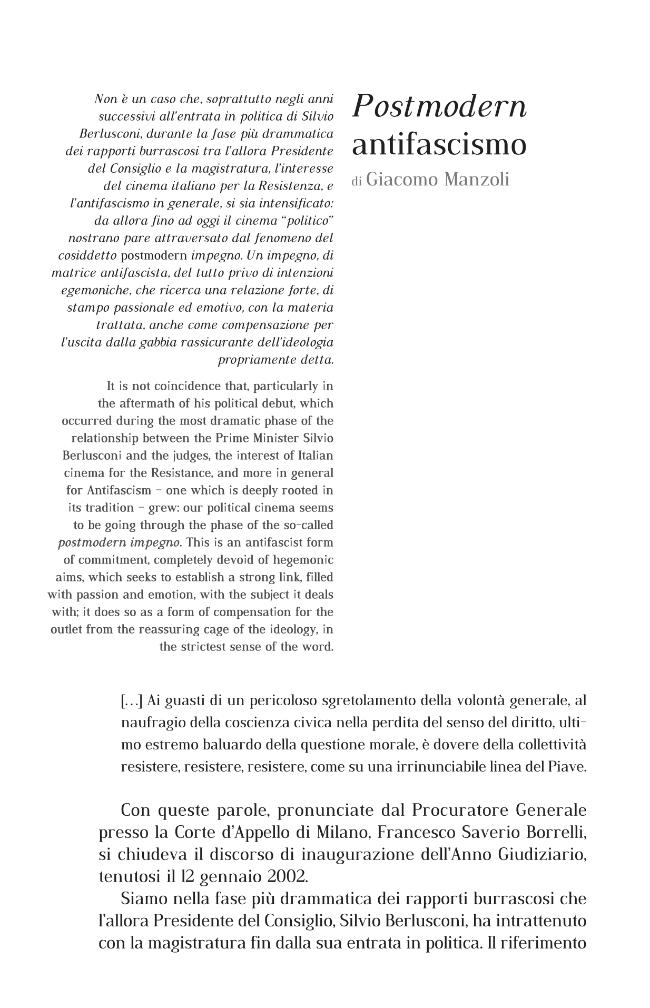Postmodern antifascismo
P. 117-130
Non è un caso che, soprattutto negli anni successivi all'entrata in politica di Silvio Berlusconi, durante la fase più drammatica dei rapporti burrascosi tra l'allora Presidente del Consiglio e la magistratura, l'interesse del cinema italiano per la Resistenza, e l'antifascismo in generale, si sia intensificato: da allora fino ad oggi il cinema “politico” nostrano pare attraversato dal fenomeno del cosiddetto postmodern impegno. Un impegno, di matrice antifascista, del tutto privo di intenzioni egemoniche, che ricerca una relazione forte, di stampo passionale ed emotivo, con la materia trattata, anche come compensazione per l'uscita dalla gabbia rassicurante dell'ideologia propriamente detta. [Testo dell'editore]
It is not coincidence that, particularly in the aftermath of his political debut, which occurred during the most dramatic phase of the relationship between the Prime Minister Silvio Berlusconi and the judges, the interest of Italian cinema for the Resistance, and more in general for Antifascism - one which is deeply rooted in its tradition - grew: our political cinema seems to be going through the phase of the so-called postmodern impegno. This is an antifascist form of commitment, completely devoid of hegemonic aims, which seeks to establish a strong link, filled with passion and emotion, with the subject it deals with; it does so as a form of compensation for the outlet from the reassuring cage of the ideology, in the strictest sense of the word. [Publisher's text]
-
Articles from the same issue (available individually)
-
Information
DOI: 10.1400/242823
ISSN: 2283-9852



